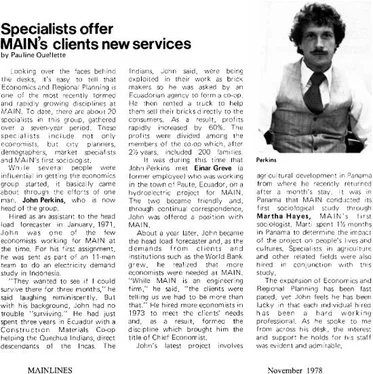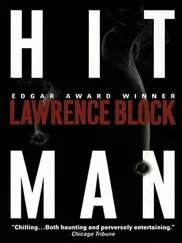John Perkins - Confessions of an Economic Hit Man
Здесь есть возможность читать онлайн «John Perkins - Confessions of an Economic Hit Man» весь текст электронной книги совершенно бесплатно (целиком полную версию без сокращений). В некоторых случаях можно слушать аудио, скачать через торрент в формате fb2 и присутствует краткое содержание. Жанр: economics, на английском языке. Описание произведения, (предисловие) а так же отзывы посетителей доступны на портале библиотеки ЛибКат.
- Название:Confessions of an Economic Hit Man
- Автор:
- Жанр:
- Год:неизвестен
- ISBN:нет данных
- Рейтинг книги:4 / 5. Голосов: 1
-
Избранное:Добавить в избранное
- Отзывы:
-
Ваша оценка:
- 80
- 1
- 2
- 3
- 4
- 5
Confessions of an Economic Hit Man: краткое содержание, описание и аннотация
Предлагаем к чтению аннотацию, описание, краткое содержание или предисловие (зависит от того, что написал сам автор книги «Confessions of an Economic Hit Man»). Если вы не нашли необходимую информацию о книге — напишите в комментариях, мы постараемся отыскать её.
Confessions of an Economic Hit Man — читать онлайн бесплатно полную книгу (весь текст) целиком
Ниже представлен текст книги, разбитый по страницам. Система сохранения места последней прочитанной страницы, позволяет с удобством читать онлайн бесплатно книгу «Confessions of an Economic Hit Man», без необходимости каждый раз заново искать на чём Вы остановились. Поставьте закладку, и сможете в любой момент перейти на страницу, на которой закончили чтение.
Интервал:
Закладка:
In fact, today the existence of such a currency is no longer hypothetical; the euro entered the international financial scene on January 1, 2002 and is growing in prestige and power with every passing month. The euro offers an unusual opportunity for OPEC, if it chooses to retaliate for the Iraq invasion, or if for any other reason it decides to flex its muscles against the United States. A decision by OPEC to substitute the euro for the dollar as its standard currency would shake the empire to its very foundations. If that were to happen, and if one or two major creditors were to demand that we repay our debts in euros, the impact would be enormous.
I had these things on my mind on the morning of Good Friday, April 18, 2003, as I walked the short distance from my house to the converted garage that serves as my office, sat down at the desk, turned on the computer, and as usual, went to the New York Times Web site. The headline leaped out at me; it immediately transported me from my thoughts about the new realities of international finance, the national debt, and euros back to that of my old profession: “U.S. Gives Bechtel a Major Contract in Rebuilding Iraq.”
The article stated, “The Bush administration awarded the Bechtel Group of San Francisco the first major contract today in a vast reconstruction plan for Iraq.” Farther down the page, the authors informed readers that “The Iraqis will then work with the World Bank and the International Monetary Fund, institutions in which the United States enjoys wide influence, to reshape the country.” 2
Wide influence! There was an understatement.
I linked to another Times article, “Company Has Ties in Washington, and to Iraq.” I skipped through the first several paragraphs, which repeated much of the information from the previous article, and came to:
Bechtel has longstanding ties to the national security establishment… One director is George P. Shultz, who was secretary of state under President Ronald Reagan. Before joining the Reagan administration, Mr. Shultz, who also serves as a senior counselor to Bechtel, was the company’s president, working alongside Caspar W. Weinberger, who served as an executive at the San Francisco-based company before his appointment as defense secretary. This year, President Bush appointed Bechtel’s chief executive, Riley P. Bechtel, to serve on the President’s Export Council. 3
Here in these articles was the story of modern history, the drive to global empire, in a nutshell. What was going on in Iraq and described in the morning press was the result of the work Claudine had trained me to do some thirty-five years before, and of the work of other men and women who shared a lust for self-aggrandizement not unlike the one I had known. It marked the current point of the corporatocracy’s progress along the road to bringing every person in the world under its influence.
These articles were about the 2003 invasion of Iraq and about the contracts now being signed, both to rebuild that country from the wreckage created by our military and to build anew in the mold of the modern, westernized model. Yet, without saying so, the news of April 18, 2003, also harked back to the early 1970s and the Saudi Arabian Money-laundering Affair. SAMA and the contracts flowing out of it had established new and irrevocable precedents that allowed — indeed mandated — U.S. engineering and construction companies and the petroleum industry to co-opt the development of a desert kingdom. In the same mighty blow, SAMA established new rules for the global management of petroleum, redefined geopolitics, and forged with the Saudi royal family an alliance that would ensure their hegemony as well as their commitment to playing by our rules.
As I read those articles, I could not help but wonder how many other people knew, as I did, that Saddam would still be in charge if he had played the game as the Saudis had. He would have his missiles and chemical plants; we would have built them for him, and our people would be in charge of upgrading and servicing them. It would be a very sweet deal — even as Saudi Arabia had been.
Until now, the mainstream media had been careful not to publicize this story. But today, here it was. True, it was a mere inkling; the articles were only the meekest ghosts of a summary, yet the story seemed to be emerging. Wondering if the New York Times was taking a maverick stance, I visited the CNN Web site and read, “Bechtel Wins Iraq Contract.” The CNN story was very similar to the one in the Times , except it added,
Several other companies have at various times been reported as possible competitors for the job, either as primary bidders or as parts of teams, including the Kellogg Brown & Root (KBR) unit of Halliburton Co. — of which Vice President Dick Cheney once was CEO… [Already] Halliburton has won a contract, which could be worth $7 billion and could last up to two years, to make emergency repairs to Iraq’s oil infrastructure. 4
The story of the march to global empire did indeed appear to be leaking out. Not the details, not the fact that it was a tragic story of debt, deception, enslavement, exploitation, and the most blatant grab in history for the hearts, minds, souls, and resources of people around the world. Nothing in these articles hinted that the story of Iraq in 2003 was the continuation of a shameful story. Nor did they disclose that this story, as old as empire, has now taken on new and terrifying dimensions, both because of its magnitude during this time of globalization and because of the subtlety with which it is executed. Despite its shortfalls, however, the story did appear to be leaking out, almost reluctantly.
The idea of the reluctant story, leaking out, hit very close to home. It reminded me of my own personal story and of the many years I had postponed telling it. I had known for a very long time that I had a confession to make; still, I postponed making it. Thinking back, I see that my doubts, the whisperings of guilt, were there from the beginning. They had started in Claudine’s apartment, even before I made the commitment to go to Indonesia on that first trip, and they had haunted me almost incessantly all these years.
I also knew that had the doubts, the pain, and the guilt not constantly nagged me, I would never have gotten out. Like so many others, I would have been stuck. I would not have stood on a beach in the Virgin Islands and decided to quit MAIN. Yet, I was still deferring, just as we as a culture continue to defer.
These headlines seemed to hint at the alliance between big corporations, international banks, and governments, but like my MAIN résumé, the stories barely touched the surface. It was a gloss. The real story had little to do with the fact that the major engineering and construction firms were once again receiving billions of dollars to develop a country in our image — among a people who in all likelihood had no desire to reflect that image — or that an elite band of men was repeating an age-old ritual of abusing the privileges of their high government positions.
That picture is just too simple. It implies that all we need to do, if we decide to right the wrongs of the system, is to throw these men out. It feeds into the conspiracy theories and thereby provides a convenient excuse to turn on the TV and forget about it all, comfortable in our third-grade view of history, which runs: “They” will take care of it; the ship of state is seaworthy and will get nudged back on course. We may have to wait for the next election, but all will turn out for the best.
The real story of modern empire — of the corporatocracy that exploits desperate people and is executing history’s most brutal, selfish, and ultimately self-destructive resource-grab — has little to do with what was exposed in the newspapers that morning and has everything to do with us. And that, of course, explains why we have such difficulty listening to the real story. We prefer to believe the myth that thousands of years of human social evolution has finally perfected the ideal economic system, rather than to face the fact we have merely bought into a false concept and accepted it as gospel. We have convinced ourselves that all economic growth benefits humankind, and that the greater the growth, the more widespread the benefits. Finally, we have persuaded one another that the corollary to this concept is valid and morally just: that people who excel at stoking the fires of economic growth should be exalted and rewarded, while those born at the fringes are available for exploitation.
Читать дальшеИнтервал:
Закладка:
Похожие книги на «Confessions of an Economic Hit Man»
Представляем Вашему вниманию похожие книги на «Confessions of an Economic Hit Man» списком для выбора. Мы отобрали схожую по названию и смыслу литературу в надежде предоставить читателям больше вариантов отыскать новые, интересные, ещё непрочитанные произведения.
Обсуждение, отзывы о книге «Confessions of an Economic Hit Man» и просто собственные мнения читателей. Оставьте ваши комментарии, напишите, что Вы думаете о произведении, его смысле или главных героях. Укажите что конкретно понравилось, а что нет, и почему Вы так считаете.












